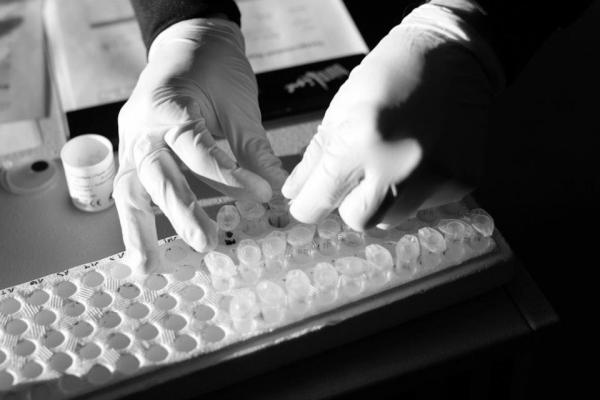Unnamed Australian rider tests positive
Exposes failings in UCI notification system
The latest race content, interviews, features, reviews and expert buying guides, direct to your inbox!
You are now subscribed
Your newsletter sign-up was successful

Details have emerged regarding an Australian cyclist racing at a UCI Continental level in 2010 testing positive for low levels benzoylecgonine, the main metabolite of cocaine. The case has exposed failings in the UCI's notification of the cyclist concerned as well as highlighting the Australian Sports Anti-Doping Authority's misconception of their own legal obligations.
The Australasian Legal Information Institute contains a link to the Administrative Appeals Tribunal of Australia case of XZTT, as the rider is identified, and the Anti-Doping Rule Violation Panel in which a decision was handed down on October 23, 2012. The cyclist had appealed an earlier decision of the ADRVP for him to be named as part of the Register of Findings under the National Anti-Doping Scheme.
The case is currently in the hands of the ADRVP for a final decision on whether the rider should face any punishment.
On October 23, 2010, XZTT supplied a urine sample following the Tour of Taihu (UCI Asia Tour 1.2) in China and two days later the National Anti-Doping Laboratory in Beijing took possession of both the A and B sample. Testing on the October 26 and 27 registered the presence (42 ng/mL) of benzoylecgonine. Cocaine and its metabolites is not prohibited by the UCI unless it has been used in-competition, however should either be present in an anti-doping sample, the rider and relevant authorities are notified.
The laboratory had formally reported and notified the UCI of its findings by November 4.
Had the UCI followed World Anti-Doping Agency procedures, the rider should have been notified of the findings seven days later, instead, he was not informed until 25 March 2011. In the meantime, according to a team statement to Cyclingnews:
"His contract was not renewed for 2011 as there were personal issues with him that led the team into taking this position."
The latest race content, interviews, features, reviews and expert buying guides, direct to your inbox!
The rider had signed for a new team in January 2011 and in doing so would have breached internal policy and seen him liable for €145,000, two years' income.
Having requested as such, the result of the rider's B-sample was confirmed as corresponding with his A-sample on 21 April 2011 by the laboratory in Beijing. On May 4, the rider was informed by the UCI that Cycling Australia would be advised to open disciplinary proceedings.
WADA code required Cycling Australia to summons the rider within two working days however it was not until May 30 and the notification came from the General Manager, Anti-Doping Programs and Legal Services, of Australian Sports Anti-Doping Authority.
In his subsequent submissions the rider denied using the prohibited substance.
The ADRVP ruled against the cyclist on 8 September 2011 for the alleged presence of benzoylecgonine and use of cocaine.
According to the AAT, the UCI was in "gross breach" of its own anti-doping regulations given the delays in notifying the rider of his test results. Meantime, "ASADA and the ADRVP each misconceived their respective legal obligations under the ASADA Act and the NAD Scheme, in so far as they proceeded on the basis that it was sufficient for the ADRVP to reach conclusions based on a 'possible' finding."
The ATT believes that "a conclusion adverse to XZTT must still be reached" and the ADRVP has been directed to record the presence of benzoylecgonine on the register.
Cyclingnews contacted both ASADA and Cycling Australia for comment but both were unable to on the basis of "confidentiality obligations".
Cyclingnews is waiting on a response from the UCI.
As a sports journalist and producer since 1997, Jane has covered Olympic and Commonwealth Games, rugby league, motorsport, cricket, surfing, triathlon, rugby union, and golf for print, radio, television and online. However her enduring passion has been cycling.
Jane is a former Australian Editor of Cyclingnews from 2011 to 2013 and continues to freelance within the cycling industry.
